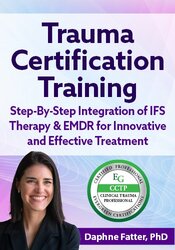Enrol in an online course today for flexible, self-paced learning—no fixed schedule required. Plus, enjoy lifetime access to course materials for convenient revisiting.
Ringing the changes with the Society for Existential Analysis
Change can feel uneasy, uncertain, something to be avoided. Yet some of us may embrace change, and are always running excitedly into the future. In existential therapy in particular, change is an opportunity to focus on how we are living – on our current lived experiences as well as our choices, freedom and responsibility. The past 30 years have seen huge changes in psychotherapy generally, as well as in existential psychotherapy. So this year’s Society for Existential Analysis conference pondered the question: What’s going to happen next?
This theme inspired speakers to consider change from different angles, from the use of psychedelic drugs in psychotherapy, to how we as therapists embrace social change. How will psychotherapy trainings change? What about changes in technology, marketing, social media, and employment? The conference also considered changes in how we interpret dreams and consider human development.
Another strand of thought was whether therapy will even exist in thirty years time – or will psychotherapists have been replaced by Alexa, or social media?
What was exciting, for me, about this year’s conference was that the presenters ranged from founding members of the society, who have been practicing, teaching and writing for thirty years, to those just starting out in the profession. Alongside keynote speakers Ernesto Spinelli and Emmy van Deurzen were Adam Knowles, a trainee on the ADEP at Regents University, and Claire Francica, who is completing her Doctorate in Counselling Psychology and Existential Psychotherapy at the New School for Psychotherapy and Counselling in London. Adam spoke about his ideas on Psychedelic Psychotherapy, and Claire described her research into Existential Dreamwork.
With all the changes going on around us, especially politically, it is easy to feel uneasy about the future of psychotherapy. But with courage we can step forward into the future and make ourselves, as psychotherapists, heard and seen. Here, in no particular order, are ten key messages from the SEA conference that really resonated with me:
1. We must reflect upon our responsibility when it comes to social change. How can we embed a deeper awareness of the difficulties society faces in our practice?
2. Don’t be on the back foot, be on the front foot! Let’s be seen at other conferences and trainings. Let’s embrace the broadening horizon of psychotherapy.
3. Life is multi-layered and complex, not dualistic – this brings humility.
4. Psychotherapy will always, ultimately, be about creating a safe dialogue, a holding presence for another who is in need of your courage, your strength and your experience.
5. We need to embrace how life is changing for our clients. What new concerns are society and politics bringing?
6. For trainee therapists and those about to make a leap into the professional world as psychotherapists: trust yourself.
7. Conflict, which can entail loss and anxiety, is also an opportunity for renegotiation and positive change.
8. No one owns experience or ideas. Make changes through sharing, holding, contributing and connectivity.
9. Women: your platform is changing. Write, speak and don’t hold back!
10. Finally, a student psychotherapist asked Ernesto Spinelli for advice on being a therapist in 2018. His words of wisdom: “Keep going, and question everything!”

















